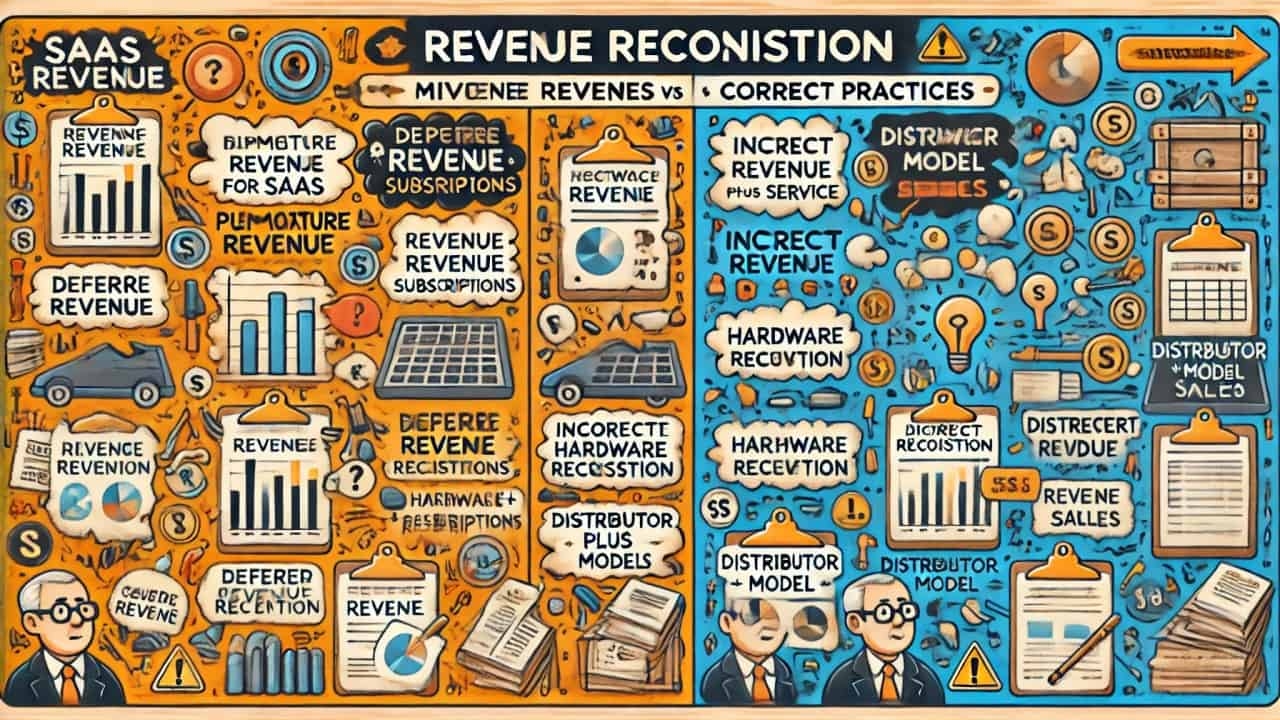Key Considerations for Revenue Recognition for Startups in India
Revenue recognition is governed by Ind AS 115 (Revenue from Contracts with Customers) in India, which is aligned with IFRS 15. The standard follows a five-step model:
1. Identify the contract(s) with the customer
2. Identify the performance obligations in the contract
3. Determine the transaction price
4. Allocate the transaction price to performance obligations
5. Recognize revenue when (or as) the entity satisfies a performance obligation
For startups, misinterpretation or incorrect application of these principles can lead to compliance risks, tax implications, and cash flow mismatches. Below are specific scenarios and best practices for various models:
1. Hardware Sales (One-Time and Subscription-Based Models)
• Scenario 1: One-Time Sale (e.g., IoT Devices, Consumer Electronics)
• If hardware is sold outright, revenue is recognized when control is transferred (e.g., when the product is delivered to the customer).
• Payments received before delivery should be treated as “Advance from Customers” (liability on the balance sheet).
• Key Mistake: Recognizing revenue at the time of receiving payment instead of upon delivery.
• Scenario 2: Hardware with Ongoing Services (e.g., IoT Devices with SaaS Subscription)
• If the hardware is bundled with a software/service subscription (e.g., security cameras with cloud storage), revenue must be allocated between hardware and service.
• The hardware component is recognized immediately upon delivery, while the service portion is recognized over the subscription period.
• Key Mistake: Recognizing the full amount as revenue upon hardware delivery instead of deferring the service portion over time.
2. SaaS (Software as a Service) Models
• Scenario: Annual Subscription SaaS
• If a customer pays ₹12,000 upfront for a 1-year software subscription, revenue should be recognized proportionately (₹1,000 per month) over the subscription period.
• Payments received upfront should be recorded as “Deferred Revenue” (Liability) until the service is provided.
Key Mistake: Recognizing the full ₹12,000 as revenue immediately instead of deferring it over 12 months.
• Scenario: Usage-Based Billing SaaS
• If revenue is based on usage (e.g., ₹5 per API call), revenue is recognized when the service is consumed and billed to the customer.
• If an upfront minimum commitment is received (e.g., ₹1 lakh for 100,000 API calls), the amount should be deferred and recognized as the API calls are used.
• Key Mistake: Recognizing revenue on receipt rather than as services are provided.
3. Distributor-Led Models (B2B or B2C via Distributors)
• Scenario 1: Selling through Distributors with Buy-Back Rights
• If a distributor has the right to return unsold goods, revenue is recognized only when the return window expires or when the distributor sells to end customers.
• Key Mistake: Recognizing revenue on dispatch to the distributor, leading to premature revenue booking.
• Scenario 2: Booking Orders but Delayed Delivery
• If a startup receives an advance payment for an order to be delivered in the next financial year, revenue should be recognized only when the delivery happens. Until then, the payment is a liability (“Advances from Customers”).
• Key Mistake: Recognizing revenue when the payment is received instead of upon delivery.
Best Practices for Indian Startups
✅ Use Accrual Accounting: Recognize revenue based on service delivery, not cash receipt.
✅ Implement Robust Accounting Software: Automate revenue recognition for recurring contracts.
✅ Properly Allocate Revenue: If bundling hardware with services, follow fair value allocation.
✅ Comply with Ind AS 115: Ensure that revenue is booked based on contractual performance obligations.
✅ Regularly Review Agreements: Ensure contracts specify when and how revenue should be recognized.





